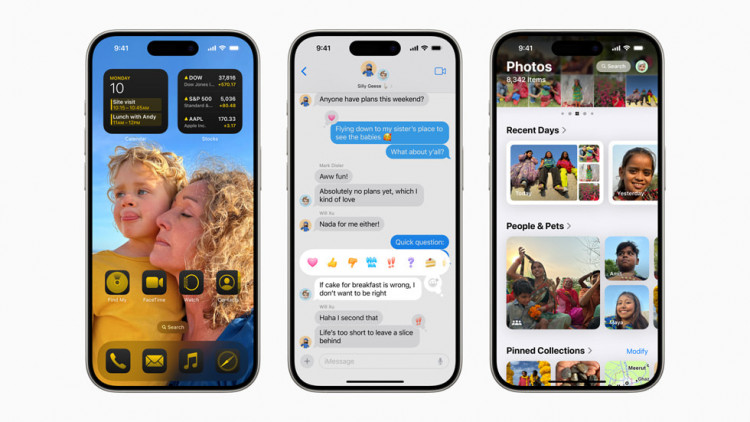Elon Musk has stirred the tech world once again with his latest announcement, threatening to ban iPhones and other Apple devices from all his companies, including Tesla, SpaceX, and X. The reason? Apple's recent integration of OpenAI's ChatGPT into its operating systems, unveiled at the Worldwide Developers Conference (WWDC) 2024. Musk took to X, the social media platform he owns, to express his concerns and lay down the gauntlet.
"If Apple integrates OpenAI at the OS level, then Apple devices will be banned at my companies. That is an unacceptable security violation," Musk wrote. He further elaborated that visitors would have to check their Apple devices at the door, where they would be stored in a Faraday cage to block any wireless signals. This dramatic stance highlights Musk's deep-seated concerns about data privacy and security with the new AI integrations.
Apple announced the integration of ChatGPT, part of a broader AI initiative named "Apple Intelligence," which aims to enhance user experiences by leveraging AI for various tasks. These tasks include allowing Siri to hand off queries to ChatGPT and enabling users to generate content or rewrite documents using AI. Apple has emphasized that user data privacy is a priority, stating that users must explicitly approve any data shared with ChatGPT, and no data will be stored by OpenAI.
Despite these assurances, Musk remains unconvinced. He believes that integrating OpenAI into Apple's OS presents significant privacy risks. Responding to a post by Sam Pullara, CTO at Sutter Hill Ventures, who explained that user data would only be shared with explicit consent, Musk retorted, "Then leave it as an app. This is bullshit." He further criticized Apple, saying, "Apple using the words 'protect your privacy' while handing your data over to a third-party AI that they don't understand and can't themselves create is not protecting privacy at all!"
Musk's apprehension seems to stem from a broader skepticism about OpenAI's handling of data and the depth of its integration into Apple's ecosystem. He has previously expressed concerns about OpenAI's trajectory, accusing the company of straying from its original mission and prioritizing profits over ethical considerations. This history adds another layer to Musk's current stance against Apple and OpenAI's collaboration.
Apple, for its part, has been clear about its commitment to user privacy. Craig Federighi, Apple's SVP of Software Engineering, assured that AI features would use a combination of on-device processing and cloud computing to maintain data privacy. He stated, "You're in control over when ChatGPT is used and will be asked before any of your information is shared. ChatGPT integration will be coming to iOS 18, iPadOS 18, and macOS Sequoia later this year."
OpenAI's CEO, Sam Altman, echoed these sentiments, emphasizing that users' requests are not logged and IP addresses are obscured. Users can opt to connect their ChatGPT account to access additional features, but this is optional and subject to user consent.
The integration of ChatGPT into Apple's ecosystem is part of a broader trend among tech giants to embed AI more deeply into their services. This move is seen as essential for staying competitive in a rapidly evolving market where AI capabilities are becoming a significant differentiator. However, it also raises important questions about data privacy, security, and the balance between convenience and control for users.
Musk's ultimatum to ban Apple devices could have significant implications for his companies. Tesla, SpaceX, and X employ thousands of people who rely on various devices, including iPhones, for their daily operations. Implementing such a ban could disrupt workflows and create logistical challenges. It also underscores the ongoing tensions between major tech players and the complex interplay of competition, collaboration, and conflict that defines the industry.
While it remains to be seen whether Musk will follow through with his threat, his outspoken criticism has certainly drawn attention to the privacy implications of AI integrations. As Apple and OpenAI move forward with their plans, they will need to navigate these concerns carefully to maintain user trust and address the broader ethical implications of their technologies.





